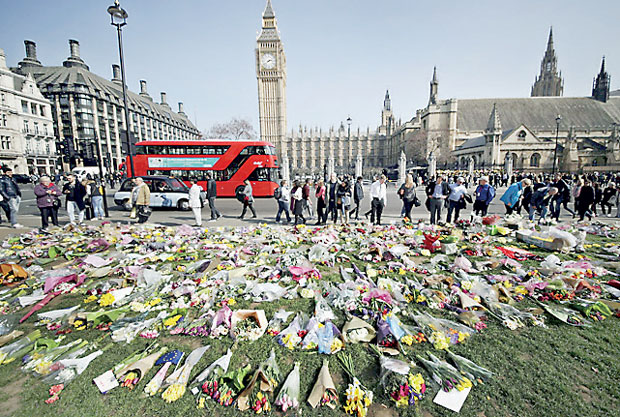29 Mar 2017 - {{hitsCtrl.values.hits}}

No matter the jihadists’ claiming of responsibility online for the brazen assault on Parliament that killed four people. 52-year-old Khalid Masood “clearly had an interest in jihad,” said Neil Basu, deputy assistant commissioner of London’s Metropolitan Police, but there was no indication that he had discussed or coordinated his plans with others.
“His methods appear to be based on low-sophistication, low-tech, low-cost techniques copied from other attacks and echo the rhetoric of [Islamic State] leaders in terms of methodology,” said Basu, who added: “I know when, where and how Masood committed his atrocities, but now I need to know why.”
When news broke of the devastating terrorist attack in London last Wednesday, many people in the English city of Birmingham hoped the trail wouldn’t lead to their city. But the next morning, as helicopters circled over Birmingham, residents there immediately suspected the reason: It was a former Birmingham resident who had committed the attack.
In the days since, there has been a sharp rise in hate emails and threats against Birmingham’s central mosque. The tensions threaten to undo years of progress that have put the city at the forefront of British counterextremism efforts.
Birmingham has long fought its image as a “hotbed of terrorism.” Khalid Masood, the perpetrator of the London attack, was only one of many violent extremists connected to the city. There, some of Britain’s most deprived Muslim citizens — who make up more than 20 percent of the city’s population — live in districts where poverty, crime and unemployment have played into the hands of radicals for decades.
Relations between the police and Birmingham mosques have significantly improved since 2014, when parents started to fear their children might leave the city and join the Islamic State. “The collaboration between authorities and the local community has so far worked better in Birmingham than on a national level,” said Chris Allen, a sociologist at the University of Birmingham.
That hasn’t always been the case. In 2010, authorities installed surveillance cameras across Birmingham to monitor the movements of Muslims suspected of terrorism — placing all Muslims under universal suspicion, critics argued at the time. The project was stopped, but not before it severely damaged relations between Muslim leaders and government officials. “You cannot fight extremism by putting a community with its back against the wall,” said 38-year-old Hamayoon Sultan, who attends prayer at the central mosque.
Now Masood’s attack threatens to bring back the cloud of suspicion. Birmingham’s Muslims have held moments of silence, vigils and marches, denouncing the incident as anti-Islamic. But the shows of unity cannot hide the anxiety of many Muslims in the city. They worry there will be a backlash against their community in the
coming weeks.
Even as he attended one such vigil on Friday, 43-year-old Mohammed Elmokhtar expressed his pessimism: “I’ve always feared the day Britain would be struck by a major terrorist attack again.” — Rick Noack
17 Nov 2024 1 hours ago
17 Nov 2024 2 hours ago
17 Nov 2024 4 hours ago
17 Nov 2024 5 hours ago
17 Nov 2024 5 hours ago